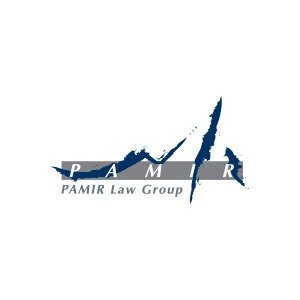Best Art & Cultural Property Law Lawyers in Taipei
Share your needs with us, get contacted by law firms.
Free. Takes 2 min.
List of the best lawyers in Taipei, Taiwan
About Art & Cultural Property Law in Taipei, Taiwan
Art & Cultural Property Law in Taipei, Taiwan, covers a wide spectrum of legal issues related to the protection, ownership, and commercialization of art and cultural heritage. These laws are designed to preserve Taiwan's rich cultural heritage, including traditional art, historical artifacts, and modern creations. The legal framework is a combination of national laws and international conventions to which Taiwan adheres, providing guidelines and protections for artists, collectors, museums, and local communities.
Why You May Need a Lawyer
Individuals and organizations engaged in the art world or owning cultural property in Taipei may encounter various legal issues requiring professional advice. Common situations where legal assistance might be necessary include:
- Disputes over the ownership of art or cultural artifacts.
- Authenticating and valuing artworks.
- Navigating international import/export regulations for artworks.
- Intellectual property issues, including copyrights and trademarks for artists.
- Complying with regulations on the restoration or conservation of cultural property.
- Handling estate planning or inheritance issues concerning art collections.
Local Laws Overview
Key aspects of local laws in Taipei that are relevant to Art & Cultural Property Law include:
- Cultural Heritage Preservation Act: This act aims to preserve and protect Taiwan's cultural heritage, outlining procedures for designation and protection of cultural assets.
- Copyright Act: Provides the legal framework for protecting the rights of creators of artistic works and ensures their ability to control the use of their creations.
- Import/Export Regulations: Taiwan imposes specific regulations when it comes to the import and export of certain cultural properties to ensure that valuable artifacts are preserved for future generations.
- Art Authentication and Appraisal: Procedures and regulations surrounding the verification and valuation of artworks to help prevent fraud and ensure accurate representation in sales and legal matters.
Frequently Asked Questions
What qualifies as cultural property under Taiwanese law?
Cultural property includes tangible artifacts, artworks, historic buildings, and other objects that have cultural, historical, or scientific significance.
What steps are involved in the cultural property designation process?
The Cultural Heritage Preservation Act outlines a process for identifying and designating cultural property, including thorough evaluation and public consultation.
How can I protect my copyright as an artist in Taiwan?
Artists can protect their work by registering it with the Taiwan Intellectual Property Office to safeguard against unauthorized use or infringement.
Are there tax benefits for donating art to museums in Taiwan?
Yes, Taiwan provides tax incentives for individuals and corporations who donate culturally significant artworks to public collections.
How can provenance be established for a piece of art?
Provenance can be established through documentation of previous ownership, auction records, and expert evaluations, ensuring the authenticity of the piece.
What should I do if my artwork is illegally exported?
Contact legal authorities immediately and seek legal counsel to navigate the process of recovering the illegally exported item.
Can contemporary works be considered cultural property?
Yes, contemporary works can be recognized as cultural property if they are of significant cultural, historical, or artistic value.
How are disputes over art ownership typically resolved in Taipei?
Disputes are generally resolved through negotiation, mediation, or, if necessary, litigation, following the local judicial processes.
What role does the government play in cultural property protection?
The government enacts and enforces laws, facilitates designations, and provides oversight to ensure the proper preservation of cultural heritage.
Are there laws protecting intangible cultural heritage in Taiwan?
Yes, Taiwan recognizes the importance of intangible cultural heritage, such as traditional performances and practices, and provides for their protection through specific legal frameworks.
Additional Resources
For those seeking further guidance, the following resources may be useful:
- Taiwan Ministry of Culture: Offers detailed information on cultural policies and heritage preservation acts.
- Taiwan Intellectual Property Office: Provides services related to intellectual property registration and enforcement.
- Taipei Bar Association: Can aid in locating qualified lawyers specializing in Art & Cultural Property Law.
- National Palace Museum: As a major custodian of cultural property, it offers insights into preservation standards and practices.
- Society for Art Law: An organization providing forums and resources on legal issues in the art industry.
Next Steps
If you require legal assistance in the field of Art & Cultural Property Law in Taipei, consider the following steps:
- Identify Your Needs: Clearly define your legal issue to ensure you seek the appropriate help.
- Consult with a Specialist: Look for attorneys or law firms specializing in art and cultural property law through local bar associations or professional networks.
- Gather Documentation: Prepare all relevant documents, such as proof of ownership, appraisals, or previous legal correspondences.
- Explore Alternative Dispute Resolutions: Consider mediation or arbitration as potential avenues for solving disputes without litigation.
Taking these initial steps can help ensure that you receive efficient and effective legal assistance tailored to your specific situation.
Lawzana helps you find the best lawyers and law firms in Taipei through a curated and pre-screened list of qualified legal professionals. Our platform offers rankings and detailed profiles of attorneys and law firms, allowing you to compare based on practice areas, including Art & Cultural Property Law, experience, and client feedback.
Each profile includes a description of the firm's areas of practice, client reviews, team members and partners, year of establishment, spoken languages, office locations, contact information, social media presence, and any published articles or resources. Most firms on our platform speak English and are experienced in both local and international legal matters.
Get a quote from top-rated law firms in Taipei, Taiwan — quickly, securely, and without unnecessary hassle.
Disclaimer:
The information provided on this page is for general informational purposes only and does not constitute legal advice. While we strive to ensure the accuracy and relevance of the content, legal information may change over time, and interpretations of the law can vary. You should always consult with a qualified legal professional for advice specific to your situation.
We disclaim all liability for actions taken or not taken based on the content of this page. If you believe any information is incorrect or outdated, please contact us, and we will review and update it where appropriate.














